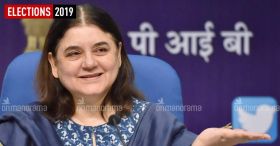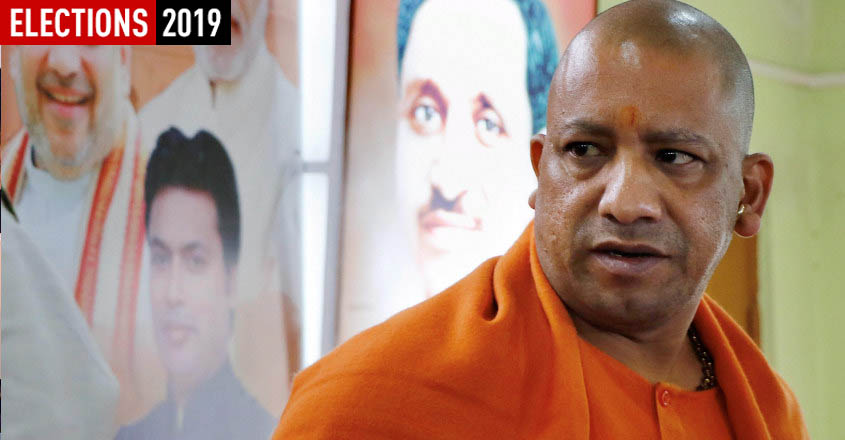
Lucknow: Campaigning for any election gets aggressive if the stakes are high. As expected a shrill campaign marked by appeals on communal and religious lines is on amid exaggerated claims, biased reports and even fake news.
The ongoing Lok Sabha election has somehow been turned into a do-or-die kind of battle by major contesting parties, resulting in the unleashing of a never-before kind of campaign rhetoric, bordering on or even crossing lines of civility.
Since Uttar Pradesh (UP) has 80 Lok Sabha seats to offer, it is advantage for any party that manages to win a substantial number of seats. So it is only natural that the rhetoric gets shriller.
For the Bharatiya Janata Party (BJP) the stakes are high as it had won 71 seats from UP in 2014. It is an uphill task to achieve a figure close to that in the current Lok Sabha polls.
For the Congress, it is an opportunity to move up to any number beyond the two seats it had notched up in 2014, while for the Bahujan Samaj Party (BSP) even one seat would be a gain from the zero it scored in 2014. Since the BSP is now aligned with once-arch enemy Samajwadi Party (SP), the two parties are offering a joint challenge to the BJP in most places, with the Congress appearing as the third force in some places.
With parties fighting either to prove a point, seeking a revival of fortunes or to ensure their survival, last-mile connect with voters has acquired an urgency like never before.
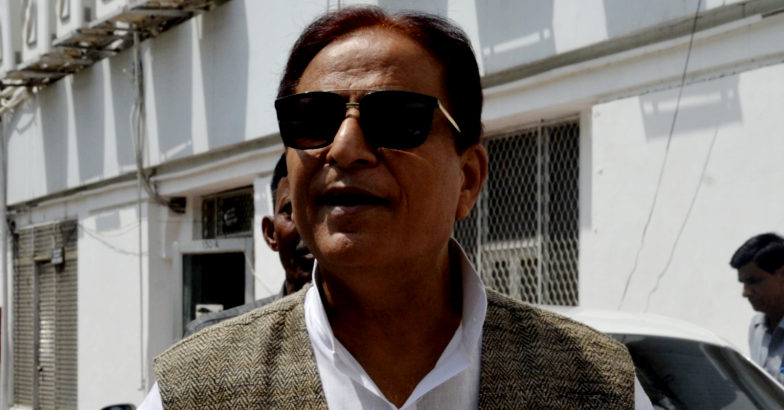
With differing definitions of what people want, political leaders and contestants are using words, terms and phrases that could be dismissed as comical were they not indicative of a deeper threat to the social fabric.
In the highly politicised atmosphere of UP, parties are obviously looking for ideas and factors that would sway voters their way.
Polarisation is no longer subtle or camouflaged.
The call to one community to worry about their future and vote accordingly is no longer a rarity.
While politicians of UP alone cannot be singled out for using insensitive or controversial language, they surely grab the limelight because of the impact their words have on the larger population.
In the melee, threats, curses, communal appeals and hints of violence have become common in campaign speeches.
In Unnao, the BJP candidate and sitting MP Sakshi Maharaj told the people at a rally that as he was a saint if the people did not vote for him, he would curse them and misery would befall upon them.
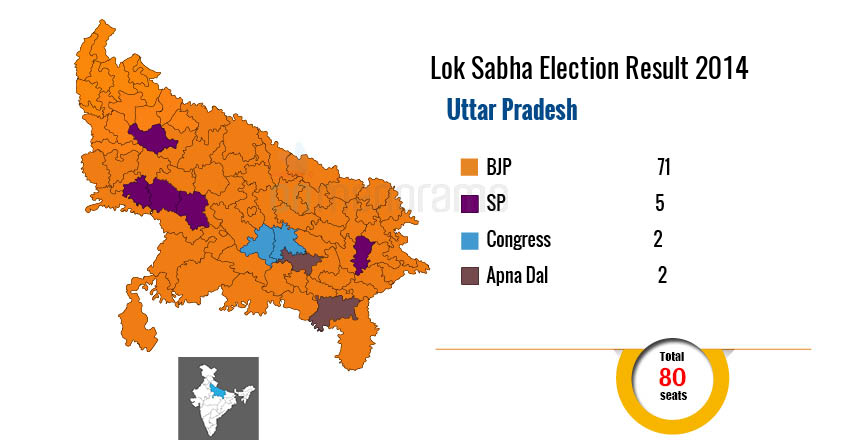
Chief Minister Yogi Adityanath said at a rally that ‘his Bajrangbali’ (another name for Lord Hanuman) was mightier than ‘Ali’, alluding to the religious faith of Muslims. After he had spoken about Hanuman's caste on poll trail last year, several theories about the monkey god's caste was bandied about by politicians.
To this, Azam Khan, former minister and SP candidate from Rampur, no stranger to controversial statements himself, retaliated by saying that ‘Bajrang Ali’ was a better option for all.
Yogi had some days ago also referred to the Congress-Muslim League alliance in Kerala as a ‘green virus’ that could extend to the entire country.
He had also referred to the Indian Army as 'Modi ki sena' upon which the Election Commission had issued him a show-cause notice for violation of model code of conduct.
Yogi later responded by saying he would be ‘careful’ in future.
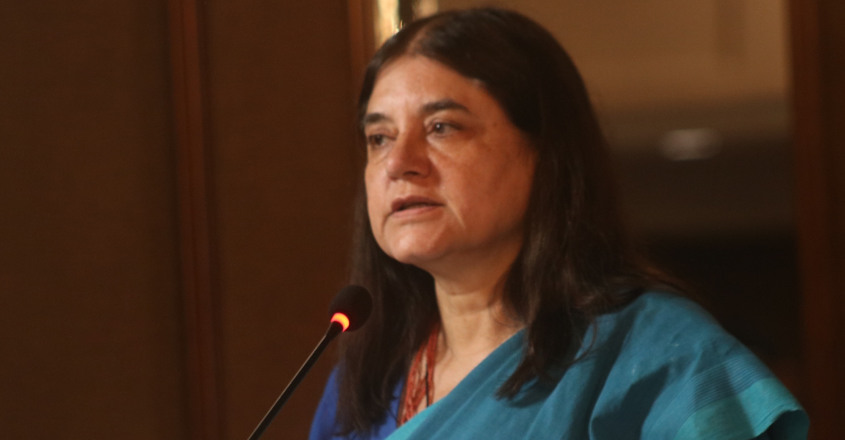
In another recent incident, Union Minister and BJP candidate from Sultanpur, Maneka Gandhi threatened people of one community to better vote for her or else they would regret it.
The video of the meeting elicited outrage over the brazenness of the statement.
Some days ago, BSP leader Mayawati had, at a meeting in Deoband, Saharanpur, openly exhorted Muslims to avoid splitting their votes and to unitedly vote for her party, which is contesting in alliance with the SP.
Regardless of the verbal mayhem of this election, UP is no stranger to such language.
In the campaigning for the 2014 election, Imran Masood, the Congress candidate from the Sahranpur Lok Sabha seat, had openly threatened to chop Narendra Modi into pieces.
Though he was suspended, the Congress took him back into its fold and made him a candidate from the same seat this time too.
In the same year (2014), Azam Khan, as a minister in UP's Akhilesh Yadav government, had said in a campaign meeting that members of one community had played a major role in the 1999 Kargil War, triggering outrage.
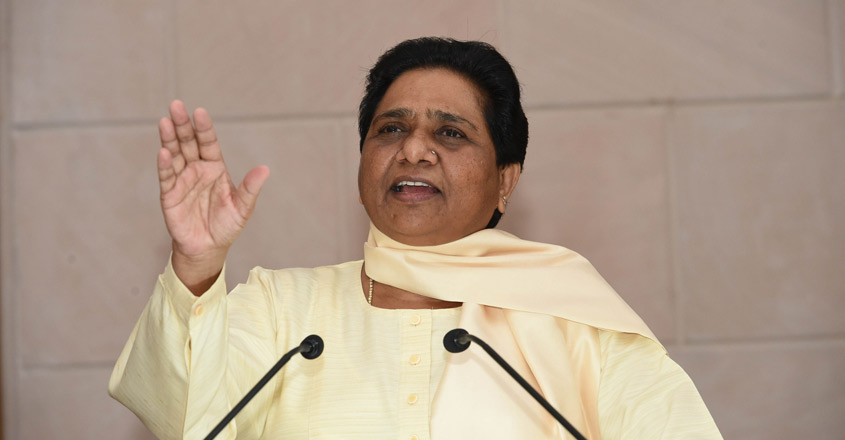
Veteran political observers feel that the standard of election campaigning has been declining over the years for the simple reason that decent statements and appeals tend to be forgotten easily, whereas strident, aggressive and often insensitive words are remembered.
“That is why politicians are competing with each other to sound more brazen than the other,” says Prof T K Roy Choudhury, a historian and author of several books on culture and literature.
In previous years, comments on women, eating habits and physical attributes including complexion have been in the limelight not only in UP but also in other states. Now, religion, religious symbols and matters of faith have joined the not so enviable list.


